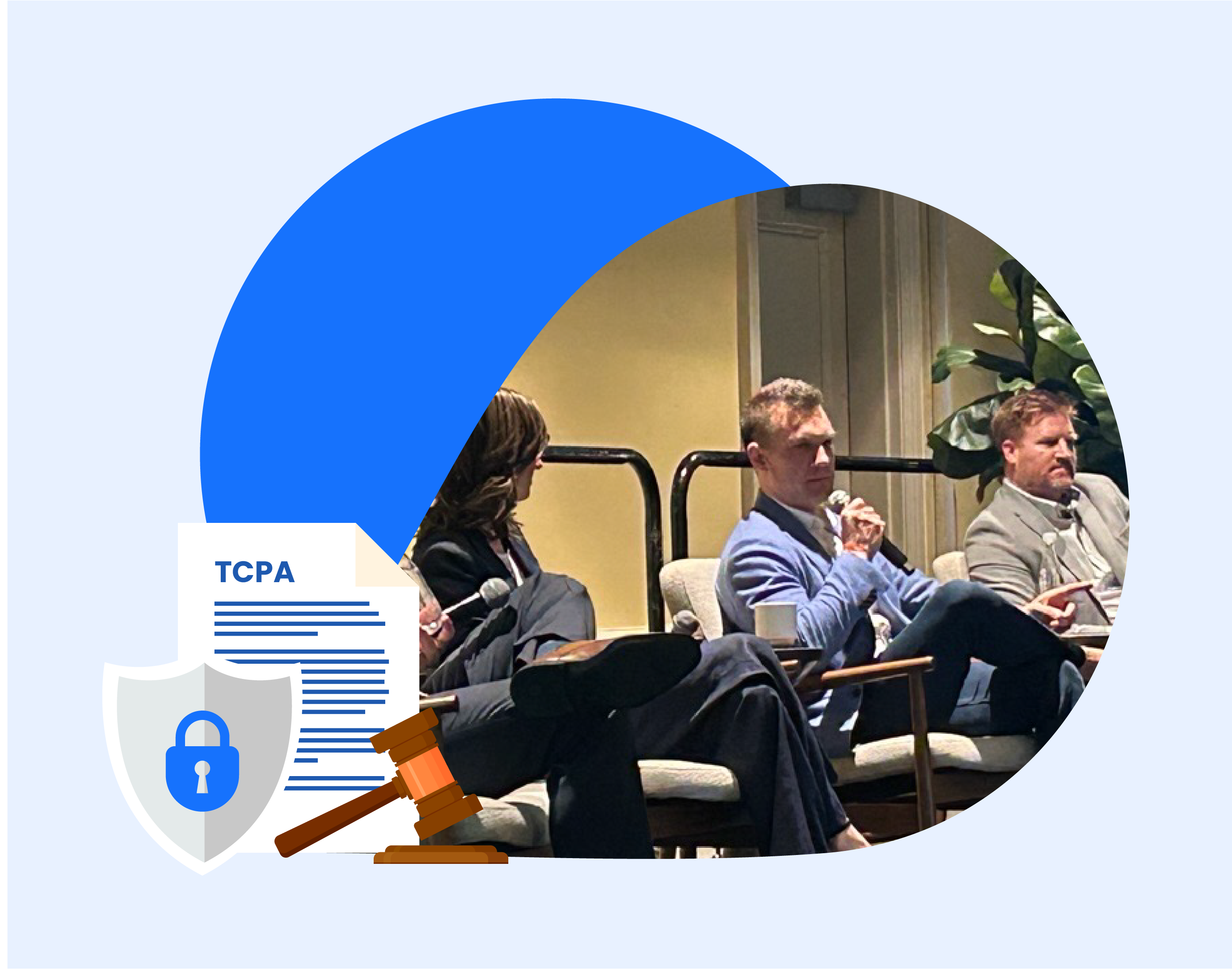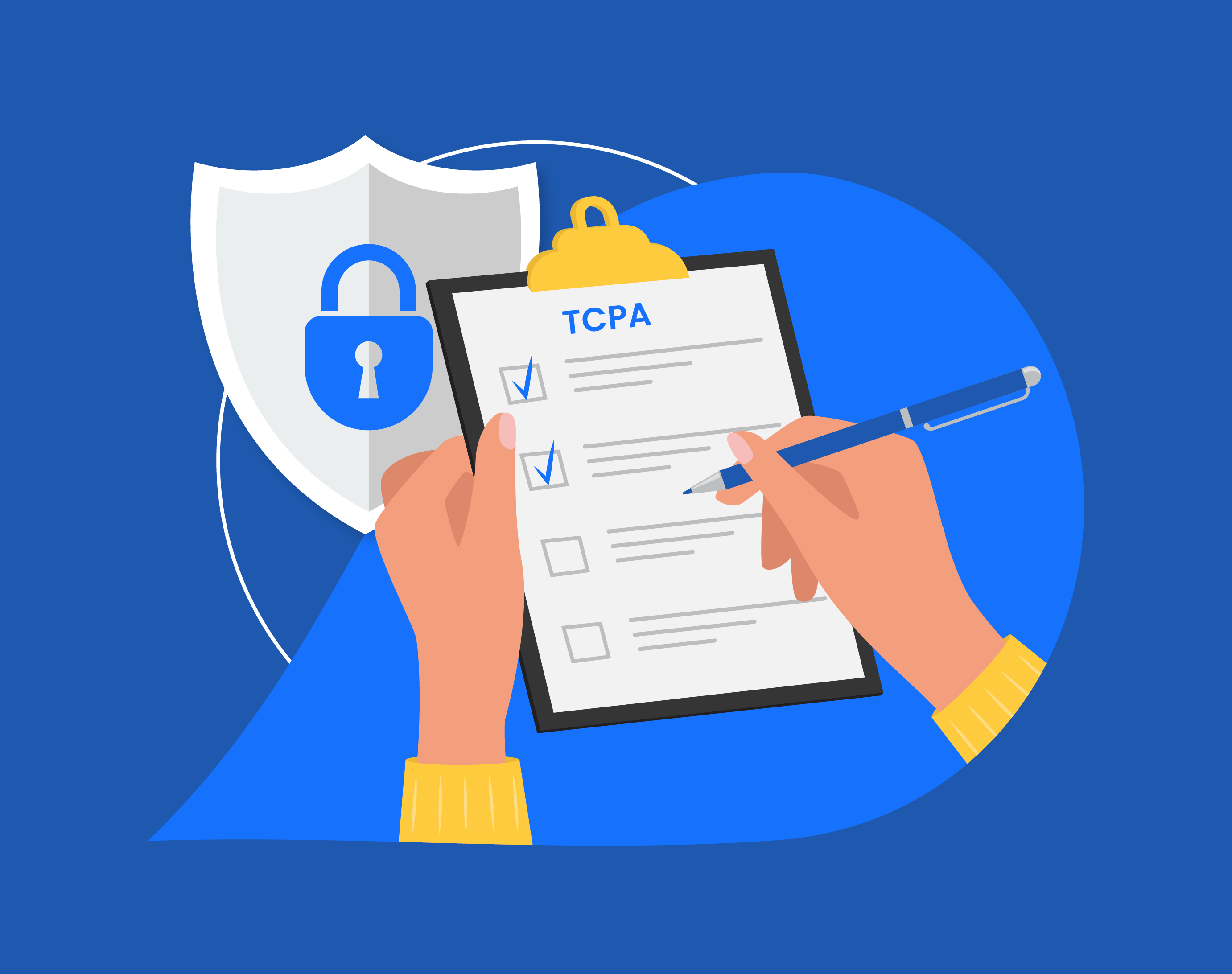SMS Compliance by Drips
At Drips, we’re at the forefront of best practices when it comes to compliance. We work with some of the biggest brands in the most heavily regulated and governed industries. Our attorney Eric Troutman, is a thought leader in TCPA and an expert in compliance — specifically around state and federal telemarketing laws. Because of his expertise, we get compliance updates in real-time.
Our team of highly skilled professionals is constantly reviewing and evaluating feedback for the optimal consumer experience. We have the tools to help you take a more proactive and thoughtful approach in ensuring compliance with telemarketing laws, proper dispositioning, and less consumer complaints or demands.
Eric Troutman told us, “Unfortunately, there’s a thicket of interrelated (and sometimes conflicting) laws and regulations out there that you need to familiarize yourself with... this stuff is navigable, but all in all, it’s probably best to consult counsel before deploying any outreach strategy.”
Federal & State Rules
There are many tools that give a brand the capacity to text, but few provide the framework that enables companies to better navigate the regulatory waters they are about to enter. Texting your audience (whether they are prospects or existing clients) has extra legal/compliance hoops you’ll need to jump through before you get started.
Here’s where you should start when you’re trying to get into SMS:
- Consult an attorney
- Federal Trade Commission (FTC), the Telemarketing Sales Rule (TSR), and unfair, deceptive, or abusive acts and practices (UDAAPs)
- Cellular Telecommunications Industry Association (CTIA), Telephone Consumer Protection Act (TCPA), and implementing rules and regulations
- The Telemarketing Sales Rule (TSR)
- National Do Not Call Registry (DNC)
- Federal Communications Commission (FCC)
- Consumer Financial Protection Bureau (CFPB)
Consent
In order to send texts or make auto-dialed or pre-recorded calls to your consumers, you must comply with all TCPA regulations. In general, TCPA laws prohibit contacting a consumer using an autodialer or prerecorded message to a consumer unless the company has prior express consent to contact them using either an autodialer or pre-recorded message/text/SMS.
Per TCPA regulations, the term prior express written consent means “an agreement, in writing, bearing the signature of the person called that clearly authorizes the seller to deliver or cause to be delivered to the person called advertisements or telemarketing messages using an automatic telephone dialing system or an artificial or prerecorded voice, and the telephone number to which the signatory authorizes such advertisements or telemarketing messages to be delivered.”
There may be cases where brands obtain implied consent (especially when gathering contact information from an existing business or non-business relationship). And though there is a case for implied consent offering you some leeway when communicating using SMS or over the phone, in general implied consent is only temporary, and express consent provides you with a more engaged audience. And, as noted below, express consent is required for marketing-based messages.
Marketing versus Administrative Campaigns
SMS campaigns are often going to be considered marketing-based unless you’re doing a purely administrative effort. If your message is marketing-focused, you should obtain expressed written consent before you send a message.
For administrative messages, you have different standards and best practices to consider. In order for a communication to count as administrative or informational, it needs to fit certain criteria:
- The communication is “closely related” to the purpose of providing information.
- The text or call is not dual purposed.
- Merely entering a phone number into a field without clicking submit is not prior express written consent.
- Immediate responses to consumer-initiated requests for information are not considered marketing.
Any other communications that involve trying to alter the consumer’s product or service for the benefit of retention or upsell (or anything beyond providing basic account information) will count as marketing. Even if you are offering, for example, to save them money on a new insurance quote.
Drips Platform
At Drips, we’re at the forefront of best practices when it comes to compliance. Our system takes a proactive approach to handling users who are disqualified and will not follow up with users who have expressly opted out, either via SMS or after they’ve answered a call.
Eric Troutman told us, “Under the TCPA, anytime a consumer clearly expresses a desire for specific automated messages to stop—the messages must stop. Period. There’s no wiggle room here.”
While most systems only understand “STOP” or “CANCEL”, our conversational AI uses Natural Language Processing (NLP) in tandem with our proprietary database of double-blind, hand-approved hot terms to easily recognize the many ways a user can ask to be removed from a campaign.
Our commitment to compliance allows companies to take a more proactive approach towards proper dispositioning and fewer consumer complaints or demands.
People communicate conversationally and won’t usually use robotic terminology like “UNSUBSCRIBE”. For example, in a 60-day snapshot, Drips identified and categorized over 250,000 unique ways a consumer can express they do not want any further communications.
Disqualification Tiers
Because of the natural language nuances that come with real conversations, Drips uses a proprietary system to identify the various types of disqualifications received from your users.
This information can help you make informed decisions about the kinds of responses you’re receiving and how to communicate with those users in the future. You can then optimize your lead sources, CRM, and marketing automation campaigns based on the rates of disqualification in each category.
- Explicits: These are users who are expressing frustration or flat-out complaining in their response.
- Unsubscribes: "Unsubscribes" come from users who explicitly request to be removed from a communications list.
- Not Interested: These users express they’re not interested in a specific offer at that time but haven’t asked to stop being contacted altogether.
- Questionable Validity: The Drips system also captures a secondary flag that questions whether a given lead opted to receive communications about a given offer.
Conclusion
Drips is proud to maintain a best-in-class database to support specific state-level and federal-level TCPA and similar communication guidelines. That means that we strive to comply with all changes and nuances associated with TCPA regulations.
Our team works tirelessly to uphold TCPA and other telephonic communication guidelines and respect the compliance policies of our clients, as well as the privacy of their customers. We continue to evolve our best practices and methodologies to maintain our high standards of excellence and maintain our commitment to compliance.
About Eric J. Troutman
Eric J. Troutman is known as the Czar of the TCPA, having served as lead counsel in the defense of over 200 nationwide class actions. He built one of the country’s first TCPA-only defense teams and began serving as national TCPA counsel for his clients nearly a decade ago. Eric is best known for his work running the extremely popular (and award-winning) legal blog www.TCPAWorld.com.
Disclaimer
This document does not, nor is it intended to, constitute legal advice; instead, all information and content herein is for educational and informational purposes only. This document does not create any warranties, nor should any be implied. Rather, all warranties Drips make are provided in written customer contracts. By agreeing to be quoted in this material, Eric J. Troutman is not providing legal advice, endorsing the product, or in any way suggesting or guaranteeing it as a TCPA compliance solution. Nor is he — or Troutman Amin, LLP — taking on any duties or making representations with respect to assuring the fitness of the Drips solution for any particular purpose and has not evaluated the intended use of the product or any circumstances surrounding its deployment. Seek counsel before deploying any new contact strategy using Drips or any other platform.







